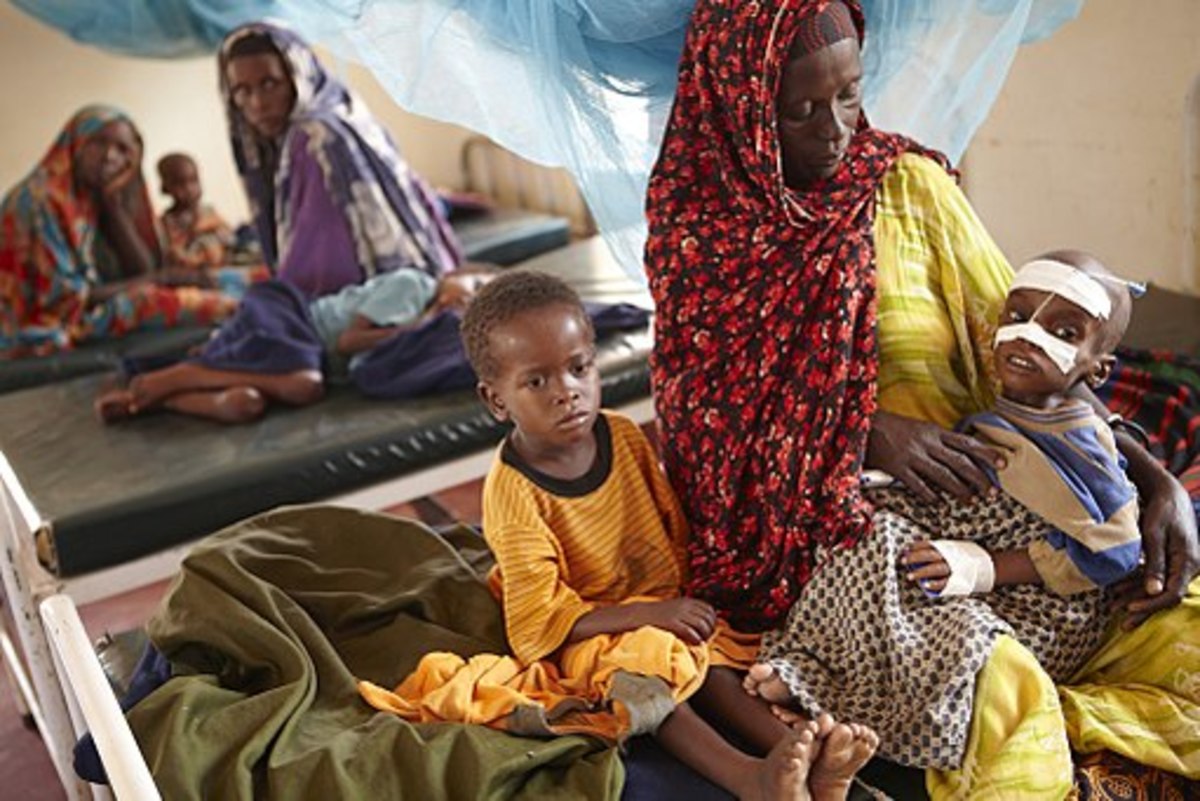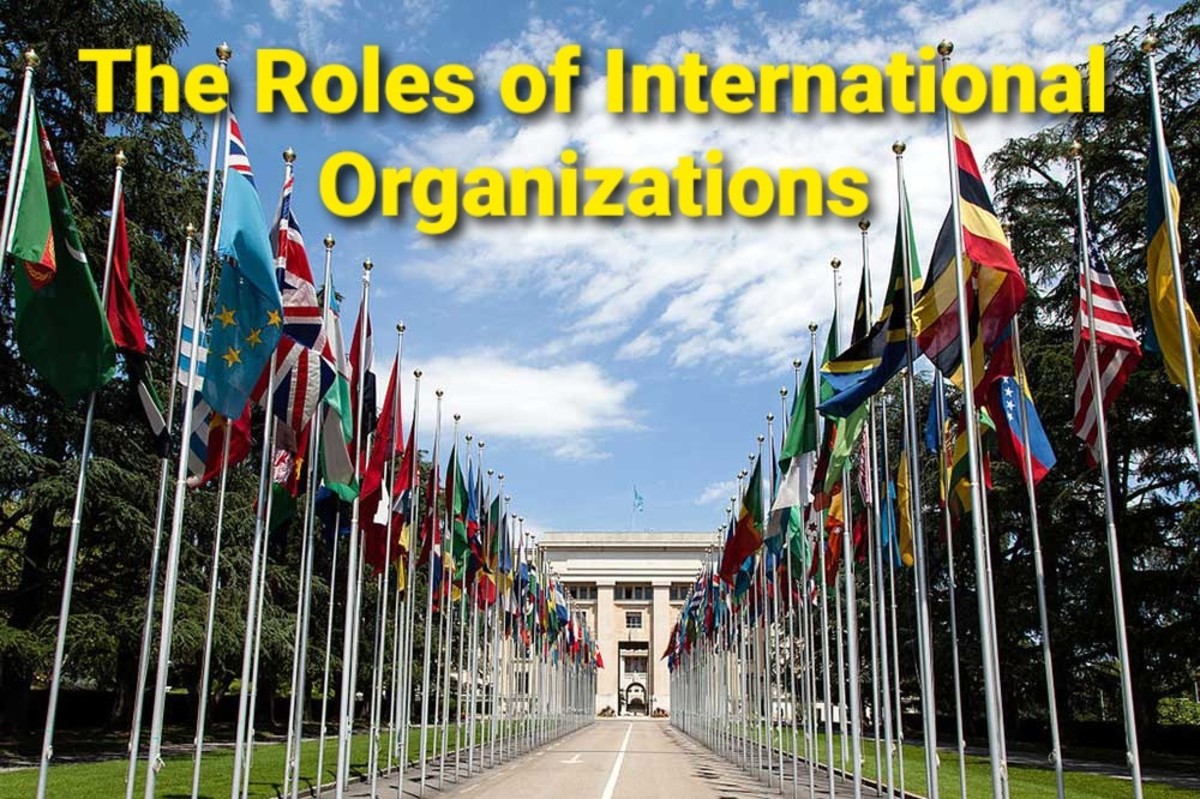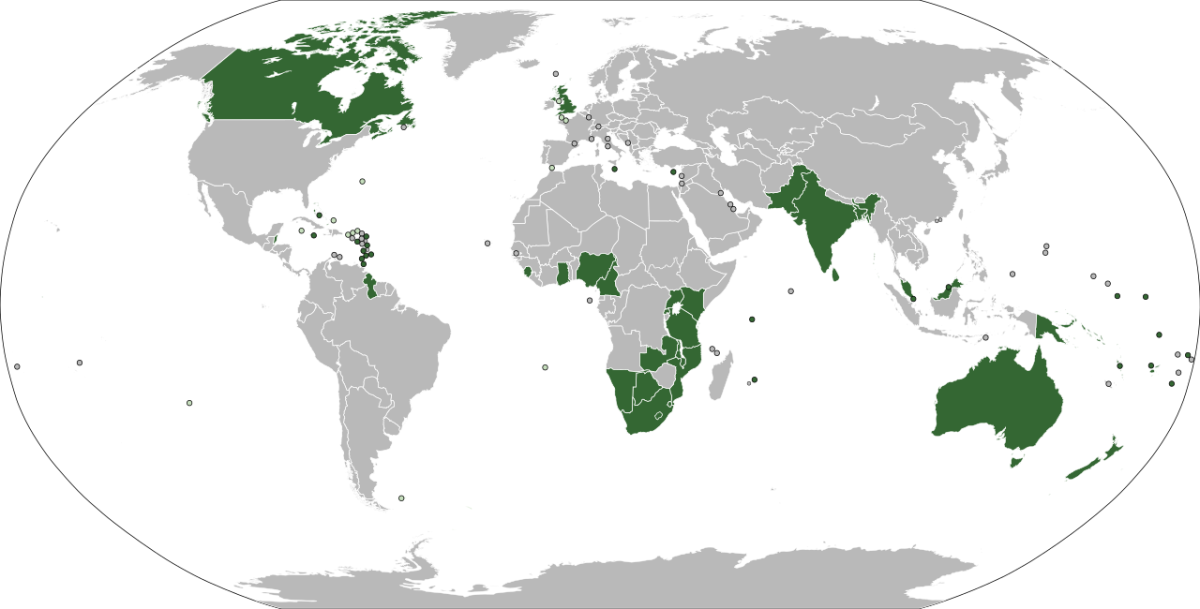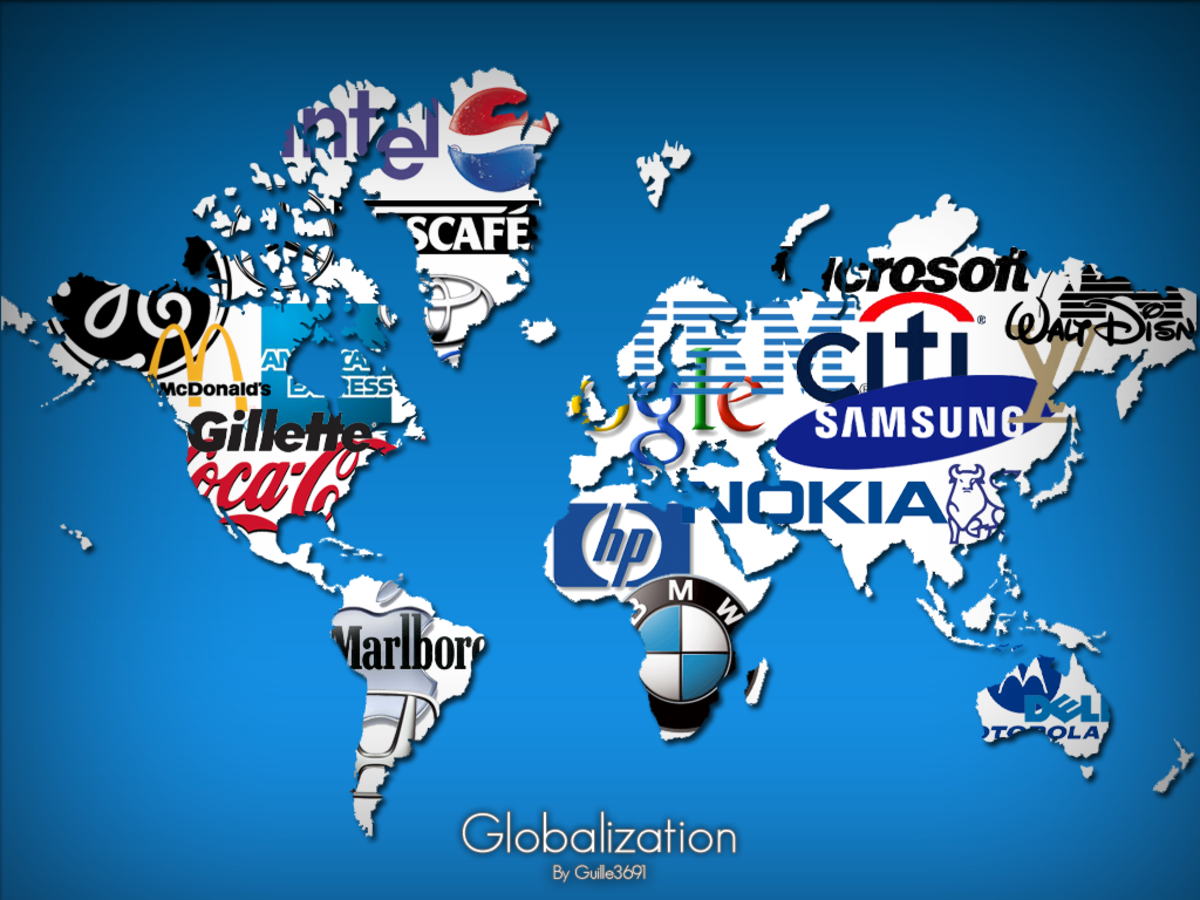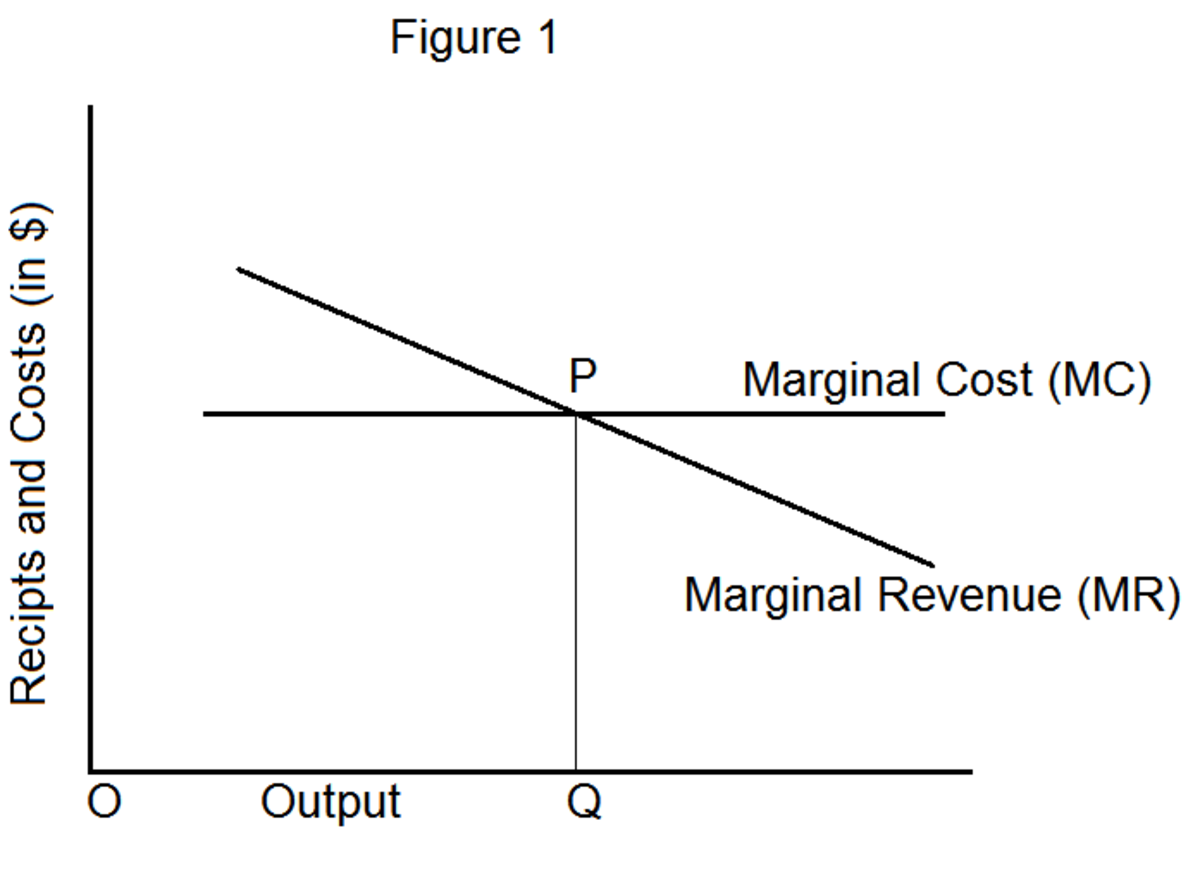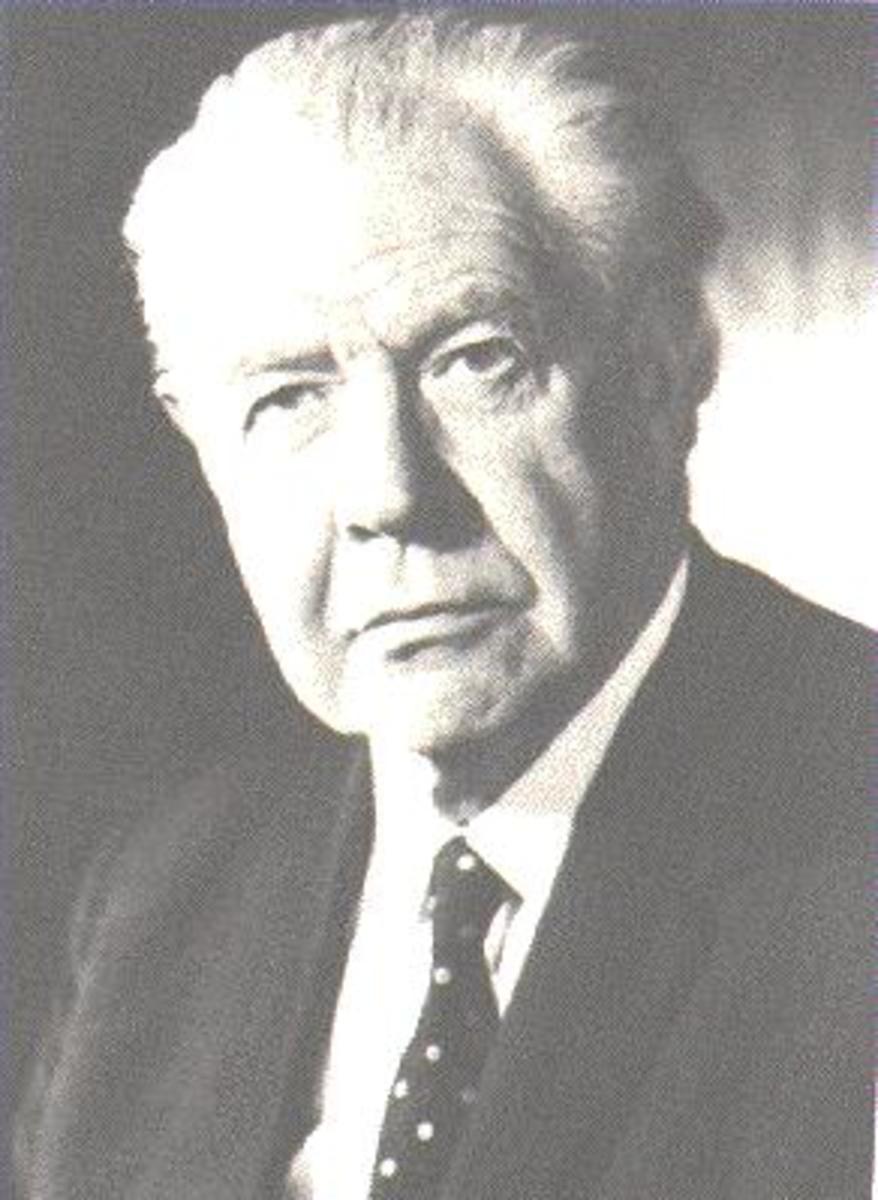Is the WTO's Conduct Discriminatory Against Developing Nations?
The World trade organization (WTO) is a global organization mandated to supervise and liberalize the world trade today. The organization was established in 1995 under the Marrakech agreement, which were a replacement of the General Agreement on Trade and Tariffs (GATT). WTO deals with trade regulation in member countries, additionally, its offers a basis for negotiations and in making trade agreements formal. The world entity also undertakes dispute resolutions process with a purpose of enforcing the member’s adherence to WTO agreements which are then ratified by their parliaments[1].
The World Trade Organization (WTO) is one of the powerful judicial and legislative body in the world today. The main aim of WTO is to promote the agenda of free trade in multinational organizations above the interests of working families, local communities and the environment. The reason why this body is so powerful unlike the multilateral environmental agreements or the international labor organizations is that its rules can be enforced by sanctions.
There has been significant development in the WTO, which has subsequently constituted a great achievement in international law. However, the system has been regarded as being far from being a technocratic process that is neutral with regard to its operation and structure. For instance, developed nations are in a better position of benefiting from the legalized system that is a resource- demanding and so far, they have at least done so. Further, the ruling of the system on remedies in particular is structured to favor developed nations. This has elicited many complaints from developed nations who see that they are being sidelined. Majority of the nations from the developing world do not bring cases to WTO dispute resolution body because they think that the ruling will not favor them. In addition, the significant costs and the uncertain gain in participating gives little rational for them to do so. An urgent need for reforming the trade system is required in order for the organ to operate fairly for all its members.
Criticisms on WTOs Treatment on Developing Nations
Proposals to improve the operations of the world trade organization have been put forth by developed nations who have seen the loopholes in the same. For instance, United States and Chile gave a proposal which was aimed at giving disputing parties more autonomy over the procedure and greater flexibility in dispute settlements. The two countries had a view that nations should be given more control over the dispute processes so as to facilitate dispute settlements and other issues. Under the current system of dispute settlement, members are encouraged to settle their own disputes. However, in most times, many developing nations do not have the necessary instruments or resources in doing so. In addition, the WTO gives parties a right to view and give comment on a draft prepared by the panel before the panel works on finalizing it, however, at the appeal stage, there is no such corresponding right. The U.S and Chile proposal stipulates that the disputing parties to have a right in seeing and presenting their comments on the report of the appellate body prior to its finalization. This would be advantageous in ensuring the realization of the best possible final report. This is because disputing parties would have the opportunity to provide important clarification on the law and facts before the report is finalized[2].
Trade sanctions by the WTO have been found to be unworkable and unfair especially for the majority of developing nations. WTO has used sanctions as a tool for favoring the nations that are economically powerful. According to Hardstaff[3], sanctions are contradictory to the ethos in the WTO. Continuing to retain sanctions as a way of law enforcement and compliance is unacceptable. Withdrawal of DSU rights may be fair for all parties but, on its own, it is not an effective tool in ensuring compliance and does not give a political leeway. This therefore, becomes not acceptable as the only method of enforcement. Additionally, compensation may also be fair for all parties, but it cannot be enough on its own as there is a potential for some countries not to pay up. In resolving this matter, the WTO should therefore, device a system of ensuring proportionality and equity that will also ensure sufficient compliance.
In the current perspective of WTO operations, the overburdening of members have turned out to be risky and dangerous. This may be the consequence of the incapability of members on failing to agree on regulations with areas that are politically sensitive within the global trading system. Since the time of its inception, the dispute settlement system at the WTO has found itself in quagmire concerning the public health such as the case of EC- asbestos and EC Hormones. Other cases that turned out to be controversial include taxation, (US FSC), environmental protection U-S (US- Shrimp) and the policy of foreign development[4].
Although to some extent the dispute settlement system has realized success in its operations, it has become harder for the system to work efficiently in areas or in countries that are politically sensitive or unstable. There is also a perspective by some members that the system is generally “politically and substantially not sustainable”. Consequently, some members are not willing to follow their regulations and may only do so, if their powers are controlled. Too much reliance of the system rather than seeking political systems may also pose danger to the system. According to Claus Dieter who was a former Appellate Body chair, the existing imbalance between the political wing of WTO, which have by so far proved to be less effective, and its judicial wing counterpart is dangerous[5]. WTO operatives must therefore, improve the efficiency and capability of the political organ in order to be able to handle sensitive political matters that are affecting the international trading system, rather than placing a lot of burden on the dispute trading system.
The present system of remedies at WTO offers the parties with a choice between retaliating and compensation. However, it can be argued that such remedies may not always meet the expectations of the members or the particular organizations or countries involved. For instance, some member who happens to violate the WTO regulation may not always be willing to stop the violations. In addition, compensations as a remedy is rarely adhered to and use of retaliation contradicts the WTO’s objective of trade liberalization. This may not offer any advantage to either party. Again, the system at present does not offer an efficient method of reporting the damages, which the parties or actors suffer.
These issues are more urgent especially for weaker or smaller nations from developing countries. This owes to the small economy of these nations and therefore lacks the capability of standing their stronger opponents in the dispute settlement system. This may negatively impact on these countries’ domestic market. From my perspective, WTO should consider financial compensation especially for weaker or smaller nations who find retaliation and the current concept of compensation as being impractical. Developing countries will find this as an effective solution for their predicament.
The WTO dispute resolution mechanism is noted to consume a lot of time in settling disputes. This in most cases makes the complainant suffer consistent economic harm especially when the challenged measure is not consistent. There is also no interim relief or provisional measures that are available in the protection of the trade and economic interests of a complainant in the time of the dispute settlement procedure. Furthermore, even irrespective of whether the dispute settlement prevails, there is no compensation for a successful complainant for the time lost during the dispute settlement. In addition, the winner in this situation is not awarded any reimbursement from the other side as legal expenses incurred during the dispute settlement. In the case of non-implementation, members do not have an equal practical capability in resorting to suspension of obligations.
The way Judges at the dispute resolution mechanism conduct their duties has also raised the question of imbalances between adjudication and legislation. Even in the case of domestic systems with power separations, there is some overlap between the judicial branch and the legislative branch. A court is mandated to address urgent disputes, however, it is at times obliged to fill the gap in the case when legislation is not adequately clear on some issues in question. In that case, the case undertakes what we call a quasi-legislative role. However, if a court goes to the extreme as to encroach on the political or legislative territory there would be ultimately a backlash with criticisms that judges who are not elected cannot be mandated to write laws as it is the work of the legislative. This is the same problem occurring at the WTO. Owing to the fact that the WTO dispute settlement has been automatic with regard to making decisions, there has been a cause of concern for the same. For example, there are occasions when the Appellate Body makes a substantial error while interpreting some of the agreement clauses in the WTO that may not have been forecasted or planned by the negotiators. Owing to the automaticity of the adoption , there is a likelihood of ruling being adopted and implemented. This has made many member states become wary of this danger[6].
The amicus briefs were among the most controversial procedural rulings issued by the dispute resolution mechanism. This is what caused the squabbles at the dispute settlement body. Some WTO member countries have openly criticized the AB for encroaching on the legislative aspect in its interpretation of the regulations. Just taking an example, an article published in the third trade network, Chakravarthi Raghavan stated that the AB and the panels had adjudicated two provisions of the agreement that were conflicting. He cited the Indonesia auto case to present his arguments. In order for the dispute resolution system to avoid this kind of problems, he gave suggestions for the general council which is the legislative body of the WTO to issue guidelines to the AB and the panel concerning on how to interpret the agreements[7]. Frieder Roessler, who is presently the executive director in the WTO advisory center became so much concerned when the AB and the panels were transgressing into other areas that were supposed to be the mandate of the WTO organs[8].
Some of the WTO dispute decisions have outraged environmentalists. Some of the notable cases in this matter are the shrimp- turtle and reformulated gasoline cases. In the reformulated gasoline case, the environmental protection agency’s decision in applying differential treatment on un-reformulated gasoline were ruled as being against the policy of national treatment ( equalized treatment of both foreign and domestic goods the moment these goods have entered the country. The shrimp imports case, a high profile case was concerned on the U.S measure in forbidding shrimp import from states which had not mandated for the use of turtle exclude device. This resulted into four Asian countries that were exporting shrimp to sue America at the WTO which they went on to win as the ruling was on their favor. The report from the panel was categorical in reprimanding U.S for taking a measure that was unilateral in their pursuance of the goal of environmental protection in protecting turtles. However, the AB toned down the heated criticism of the American policy of upholding the environmental protection policy while at the same time disallowing the particular measures which the U.S was undertaking
[1] Malanczuk, P, International Organisations and Space Law: World Trade Organization
Encyclopaedia Britannica 442. p. 305. Bibcode:1999ESASP.442..305M.
[2] US Department of State, U.S. Proposes Flexibility Reforms in WTO Dispute Settlement, Press release
issued by the Office of the United States Trade Representative Executive Office of the President
Washington, DC December 16, 2002
3.Hardstaff, P, WTO Dispute Settlement System: Reforming the Enforcement Mechanism, (The Lodge,
Sandy - Bedfordshire SG19 2DL, 2011).
[4] ibid
[5] James McCall Smith, Manufacturing Legitimacy: Judicial Politics in the WTO, paper presented at the
annual meeting of the American Political Science Association, Boston, 29 August-1 September 2002, pp. 17-21.

